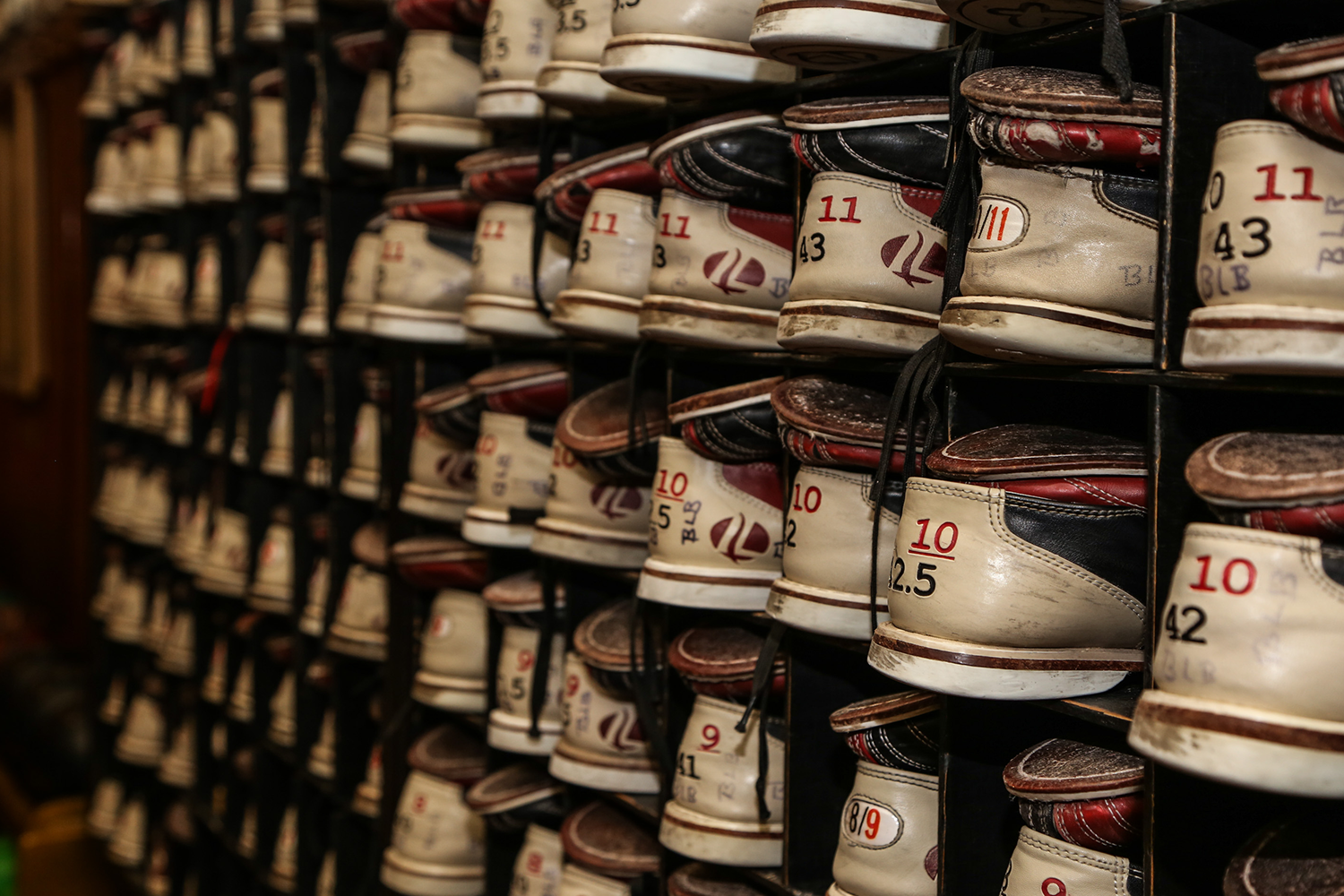
Words by Morgan Mercer | Photos by Sarah White
Pollen is celebrating the 14 businesses that have come together in support of Pollen’s mission to build better connected communities. Together, these businesses challenge Pollenites to raise $15,000 by December 31, which they will match dollar for dollar. Donate today and join them in their investment to power human connection.
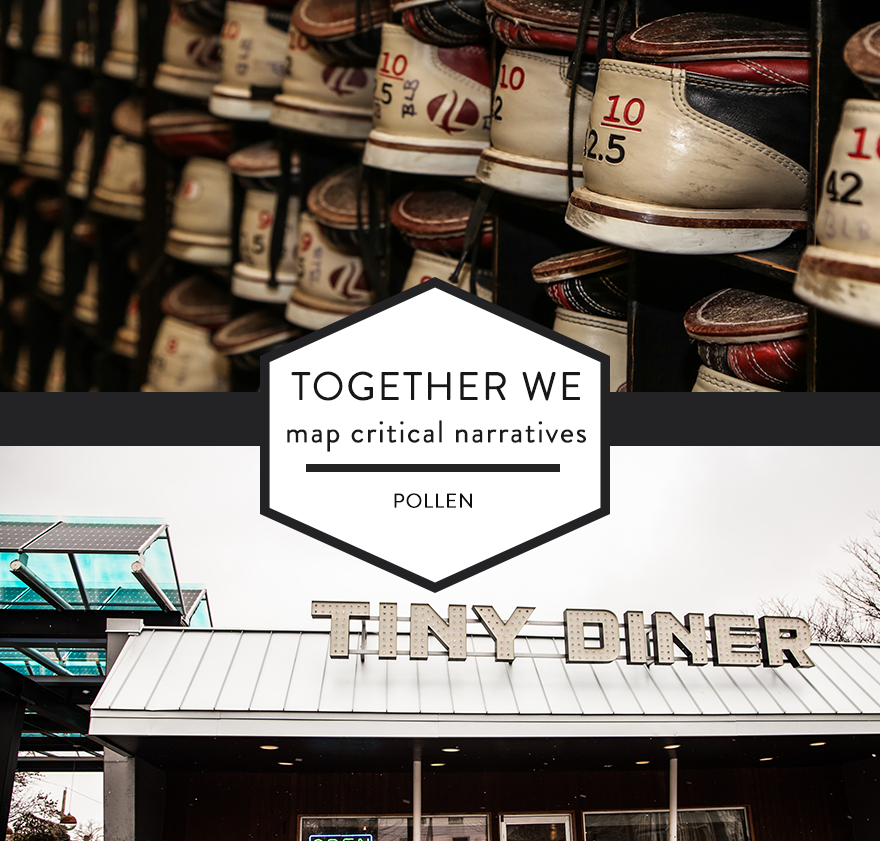
One neighborhood at a time, Kim Bartmann transforms empty buildings into a steadily growing collection of unique dining experiences. Each of her seven restaurants breathes a life of its own into the community where it takes root. For 25 years, artistic freedom and accessibility have reigned supreme at Bryant Lake Bowl & Theater (BLB). Kim’s team doesn’t censor artists’ work or ask them to pay a large fee upfront to rent the venue. Instead, BLB splits door price admission with producers. Beyond supporting artists, Kim is a pioneer when it comes to opening restaurants with a bent for sustainability. She took that to the next level with her passion project, The Tiny Diner, a space where the blue triangle solar roof is bigger than the restaurant itself. The permaculture design means the diner not only utilizes local food production, but also contributes to it. The restaurant’s farm is just a few miles from the space and supplies the fruit and vegetables for the menu.
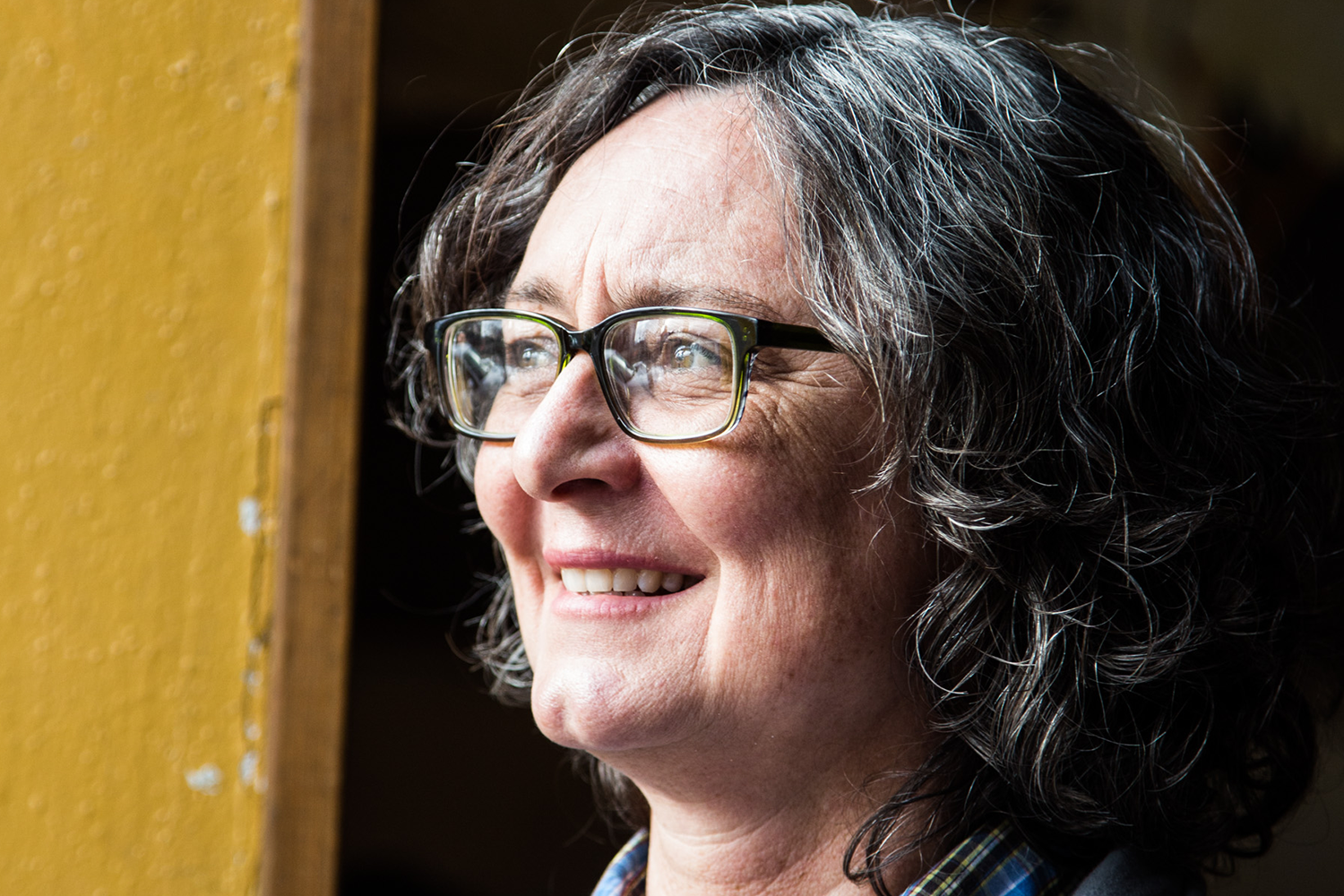
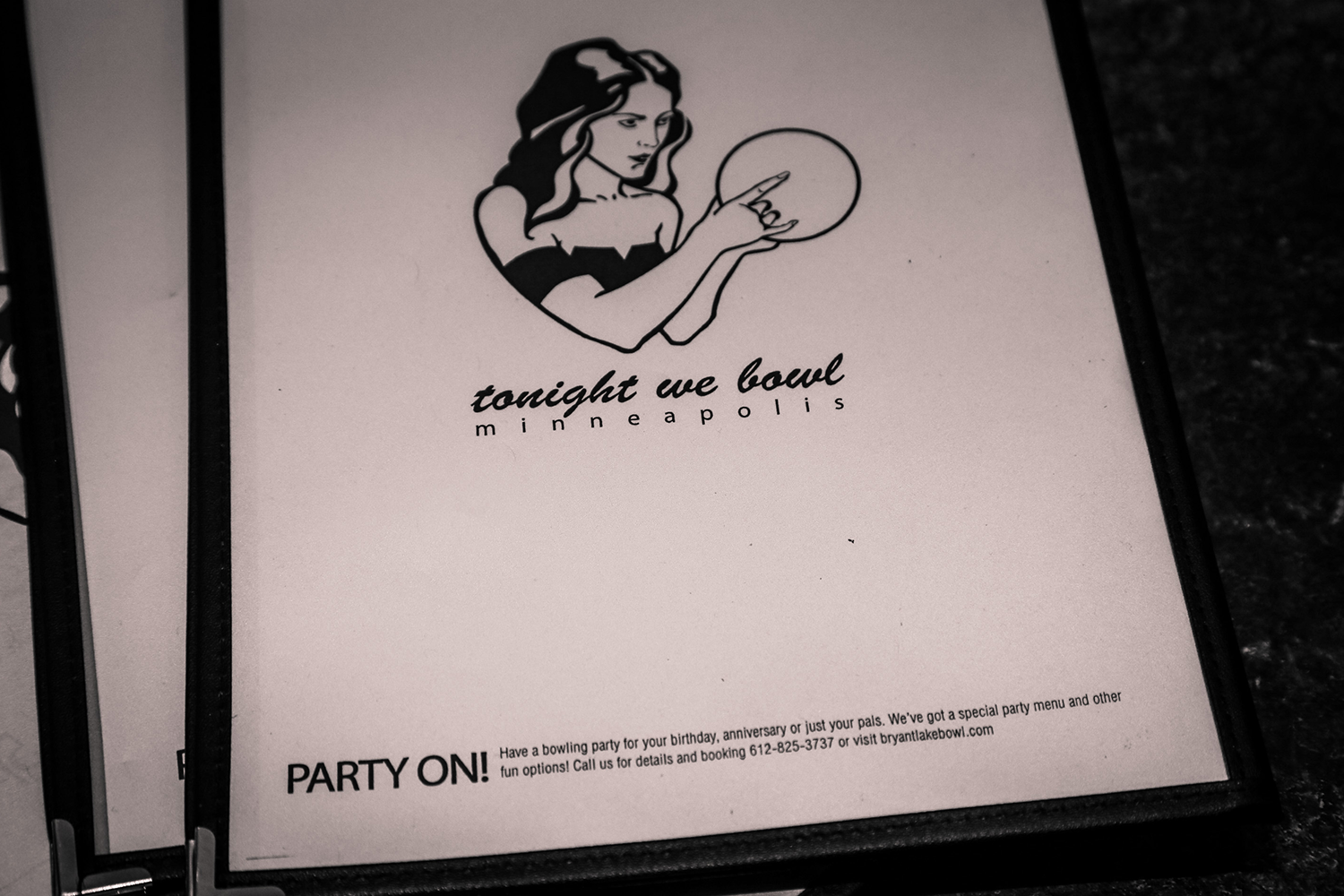
Pollen: What does creative tension look like for you in running your business?
Kim Bartmann: There’s creative tension around all the ways I try to push my values and my opinions forward in my business, even in inane details like the temperature of the room and how bright the lights shine. You have to be empathetic to other people in order to make an atmosphere people want to be in. You have to make design choices based on the practicality of how people behave in a space. I’m fascinated with that process.
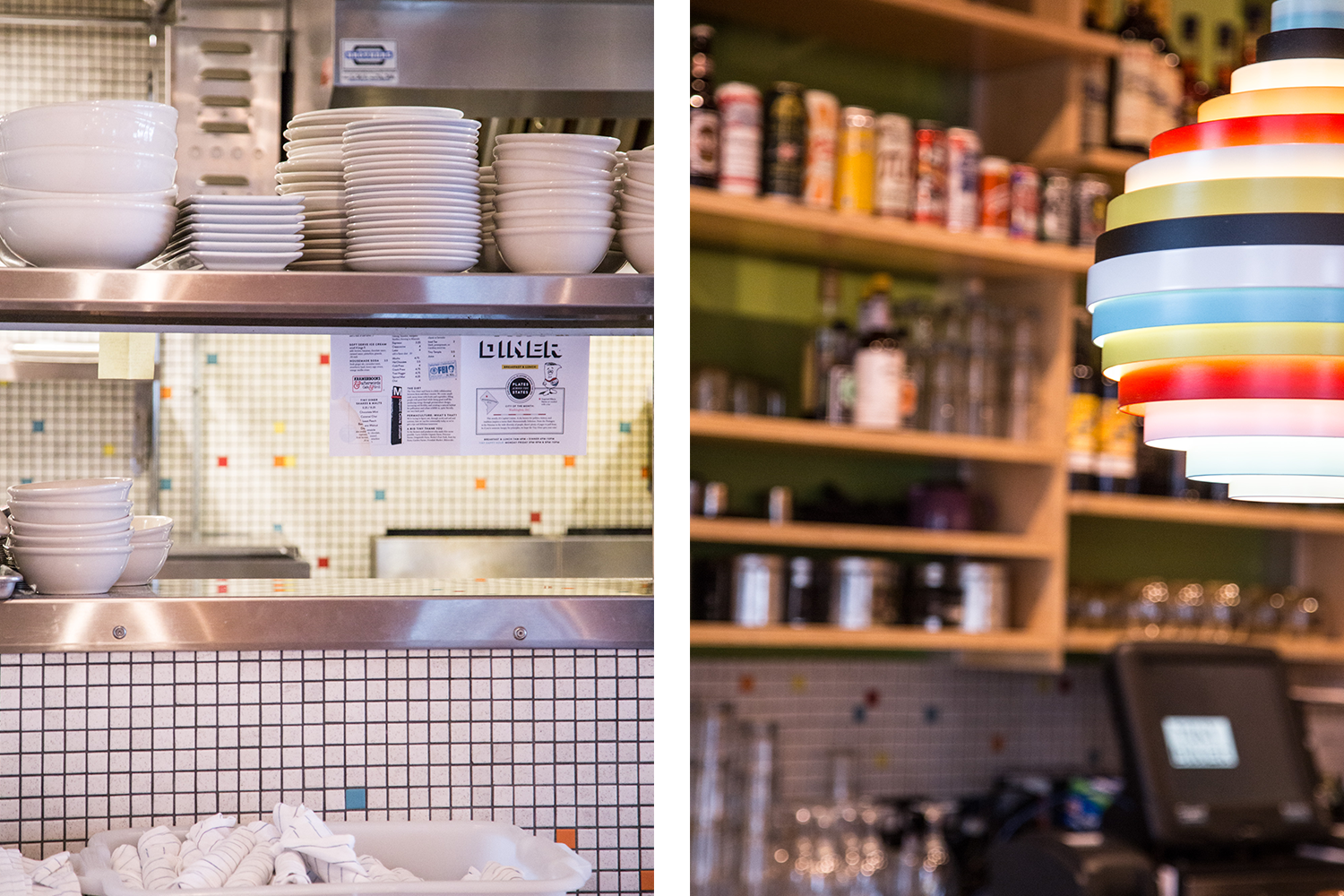
Creativity is born of constraints, and there are a lot of constraints in this business because of that tension between how things work and whether they are pretty.
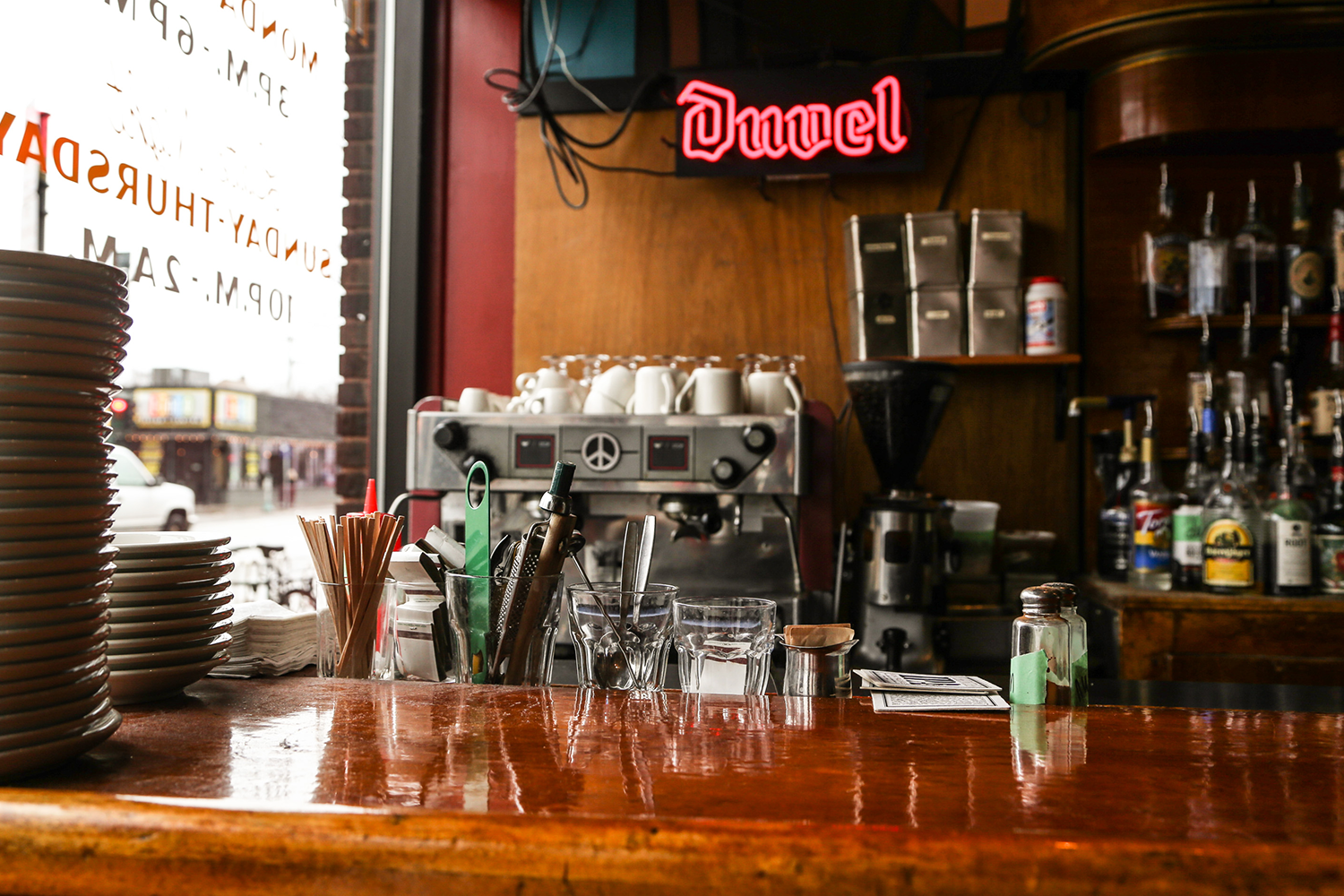
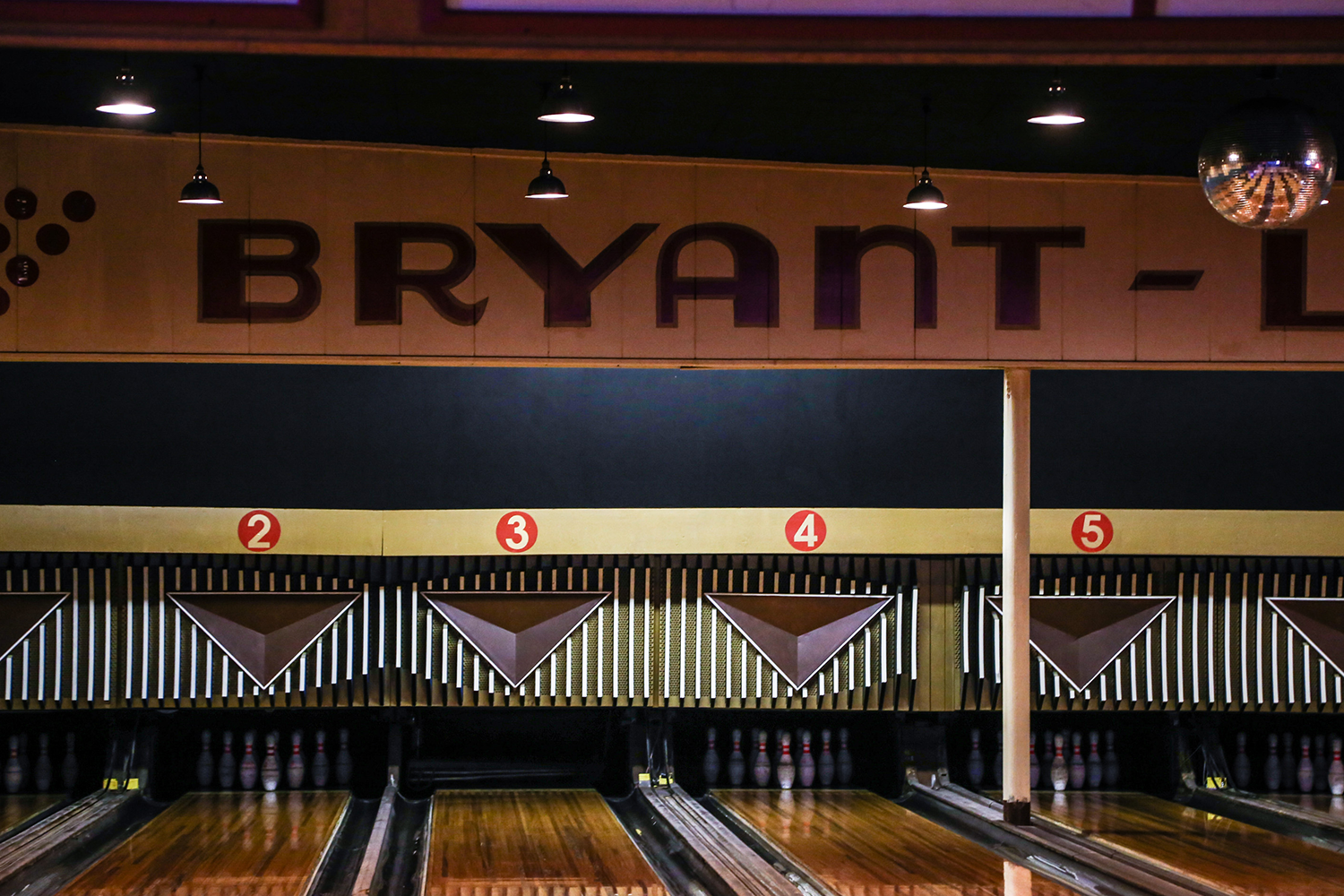
They have to do both or you fail. There are five ways to enter the 9-by-22-foot stage at Bryant Lake Bowl & Theater. BLB has operated for 23 years, and every few months an artist or producer figures out a new way to enter the theater for their show in a way no one has ever done before. That’s an amazing example of creativity born of constraints. You have to figure out something with what you’re given.
Pollen: What gets you out of bed in the morning?
Kim Bartmann: Toddlers, dogs and a cat, but never my wife.
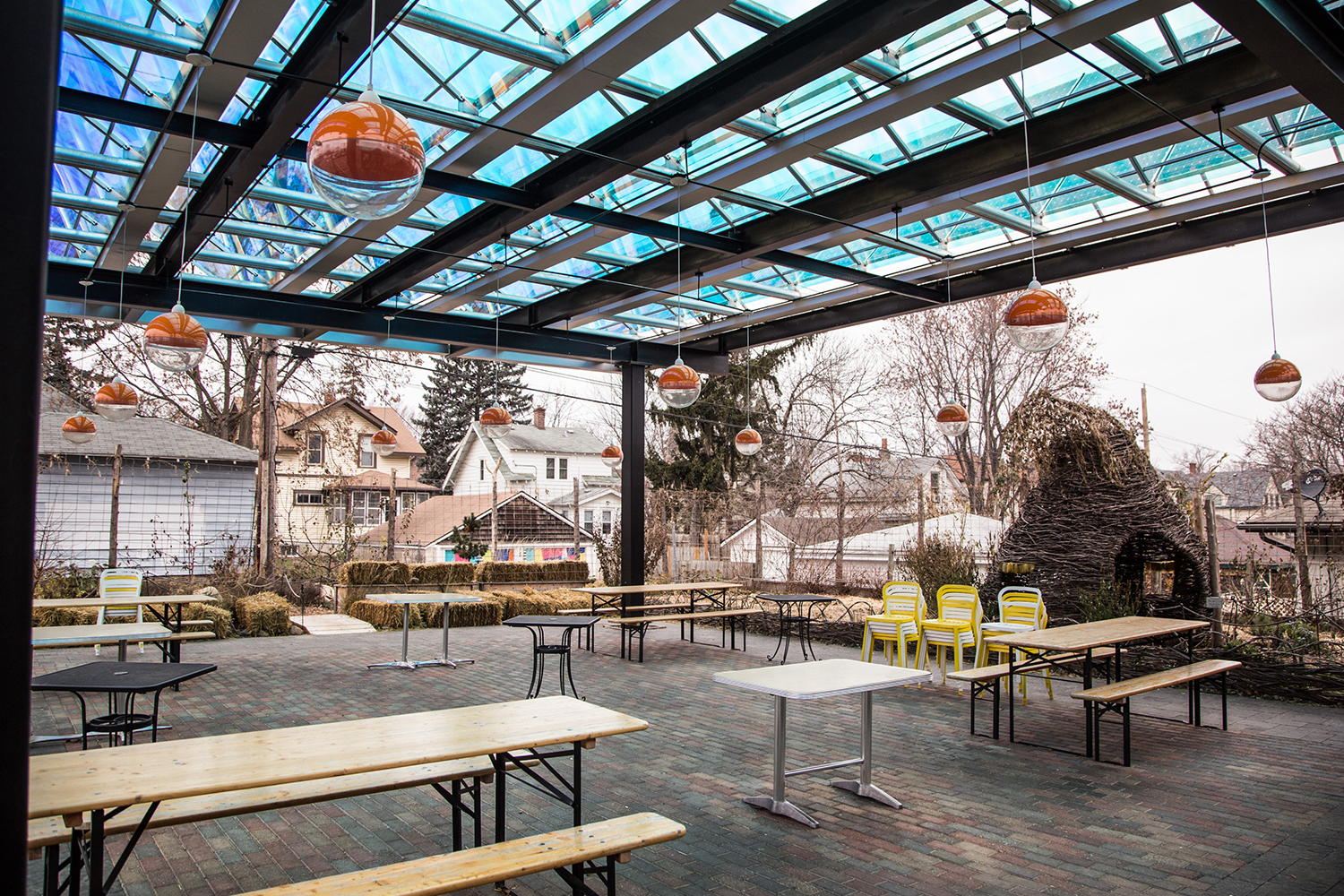

Pollen: What are the core values of your business?
Kim Bartmann: It’s all about the people who work here, and the people who rely on us to feed them. That’s a big responsibility. I quit working in the restaurant business because of the way I was treated. It’s a notorious small business in that way.
On the one hand restaurants serve people, but on the other hand the people working in those businesses are often treated poorly. I don’t want to participate in a cycle like that.
I’m also environmentally driven. Again, that’s about people and health. People need clean water, clean air, and living soil to stay alive and to be healthy. I think feeding people food that ruins our water, air, or soil is pretty backward. At some point in my career, I realized that and decided I had to do this business in a very different way, or I had to quit and do something else. We got rid of shrimp and started the process of transitioning all our proteins to local and sustainably farmed options. When I built the Red Stag Supperclub in 2007, it was Minnesota’s first LEED-certified restaurant.
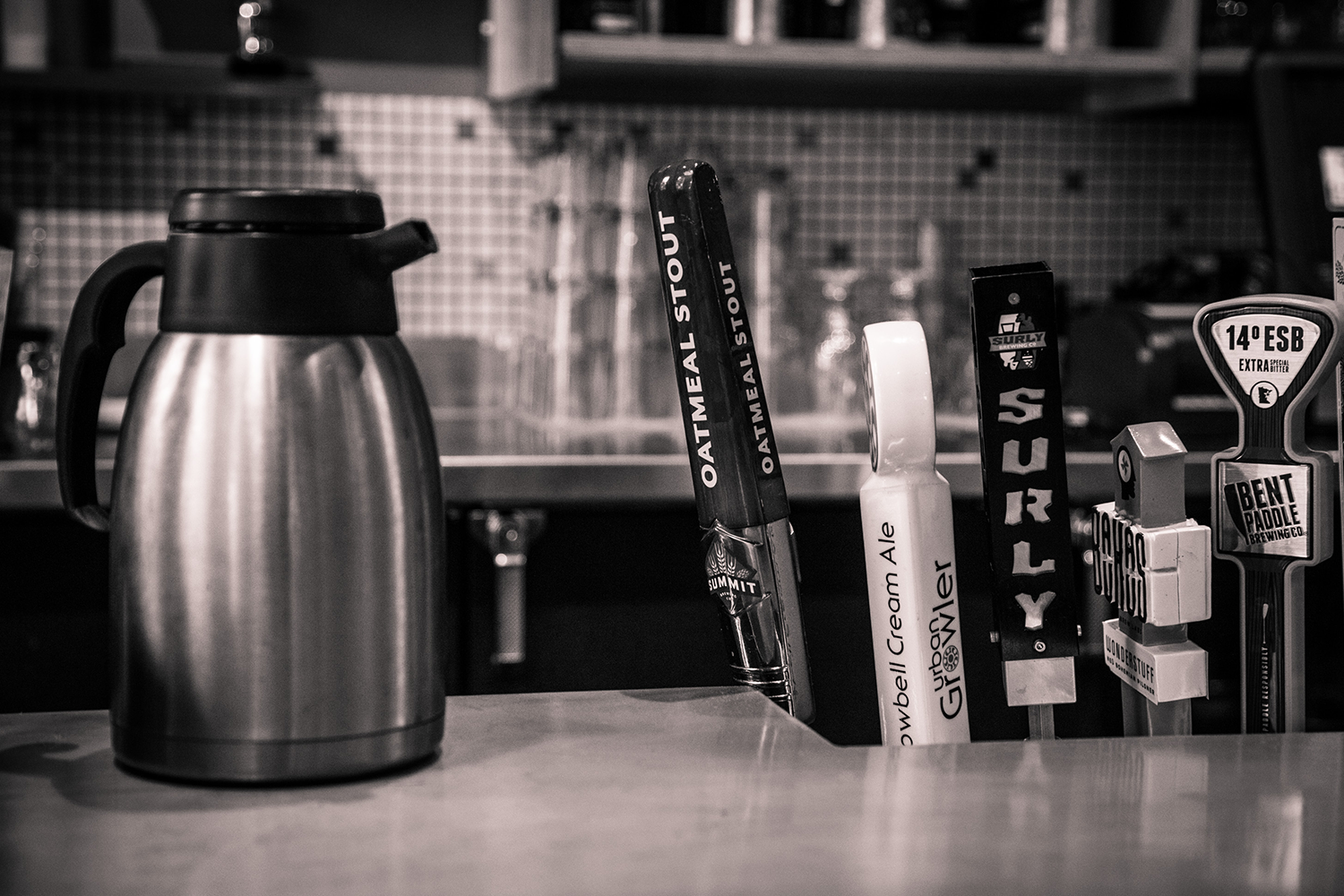
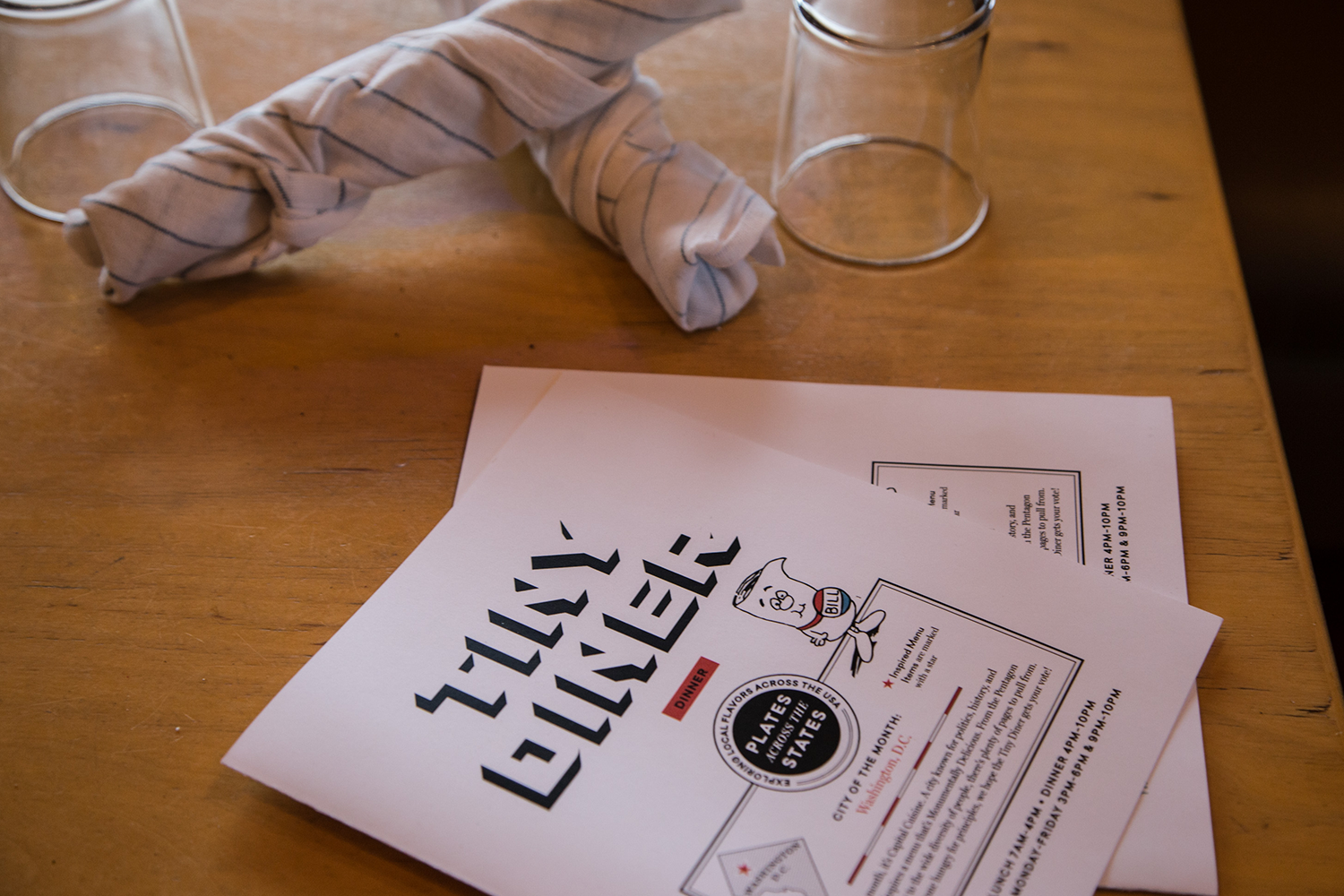
Three of my restaurants were also part of a beta test for commercial compositing in partnership with the City of Minneapolis and Hennepin County. It opens your eyes to all the little plastic things you use. Right around that time the little packets of butter wrapped in wax paper were replaced with foil paper. Foil isn’t compostable, so we had to get rid of that and change our process with butter. Now we compost at all of our restaurants.
Pollen: Where do you find your greatest sense of community?
Kim Bartmann: Old friends of course, and lately an organization called Women Chefs and Restaurateurs (WCR). I have a lot of relationships with my peers here in town, but there is a whole world of people out there creating different kinds of restaurants and working different culinary jobs. Joining WCR and going to events in different parts of the country is interesting. I have a whole new group of peers I can talk to about my business, my passion for food, and the politics of whether or not women are portrayed in the media as often as men. I joined a couple of years ago, and I’m on the board of directors now. Hopefully, we’ll bring the national conference to Minneapolis in 2018.
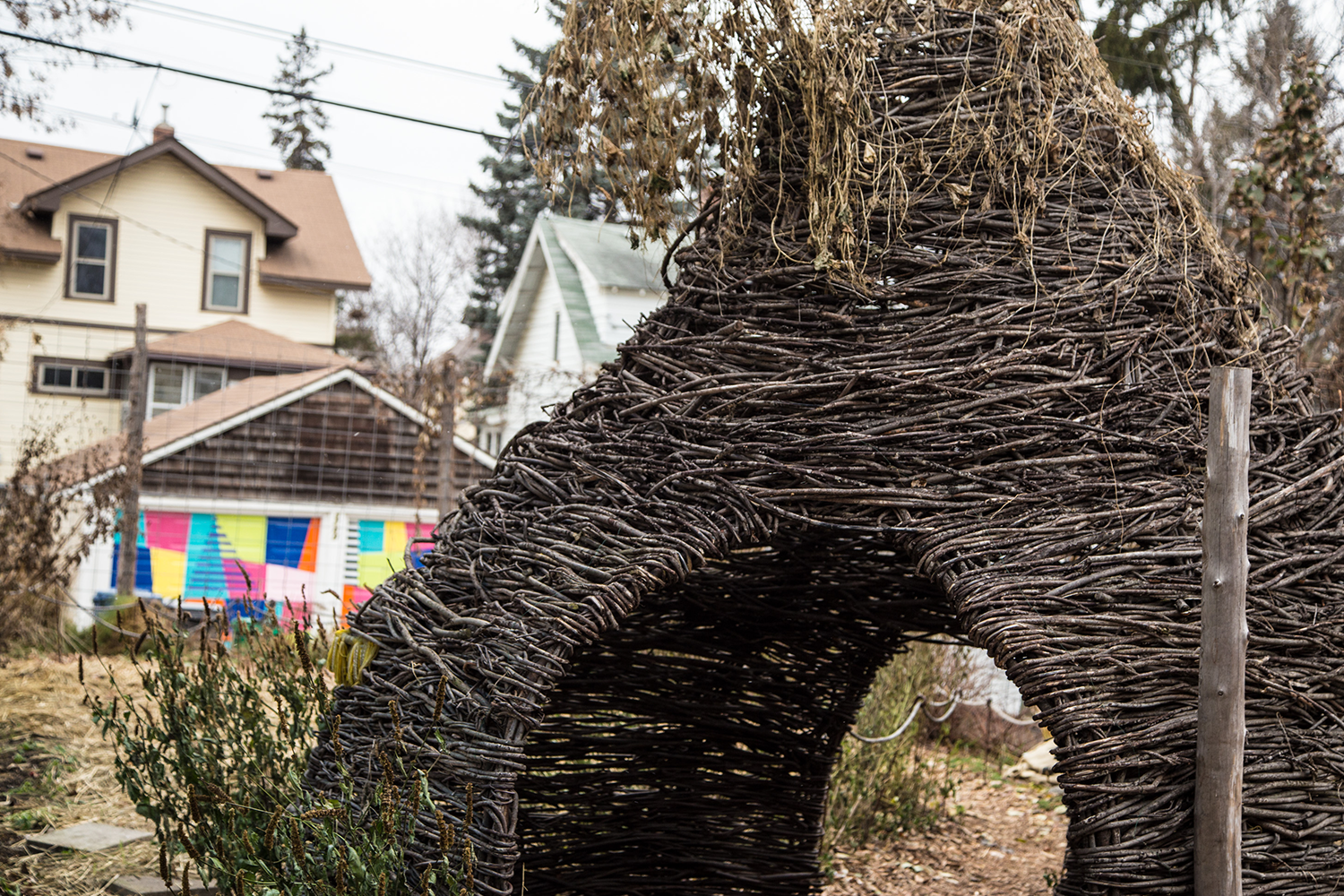
Pollen: What’s your hope for Pollen’s future?
Kim Bartmann: I want them to keep doing what they’re doing. I’ve been to many events and I think it’s powerful for people to get in a room and hear stories from a particular perspective or about a particular subject. It’s powerful to talk with people across disciplines and across cultures. Pollen is good at convening those groups of people and empowering them to make that happen.